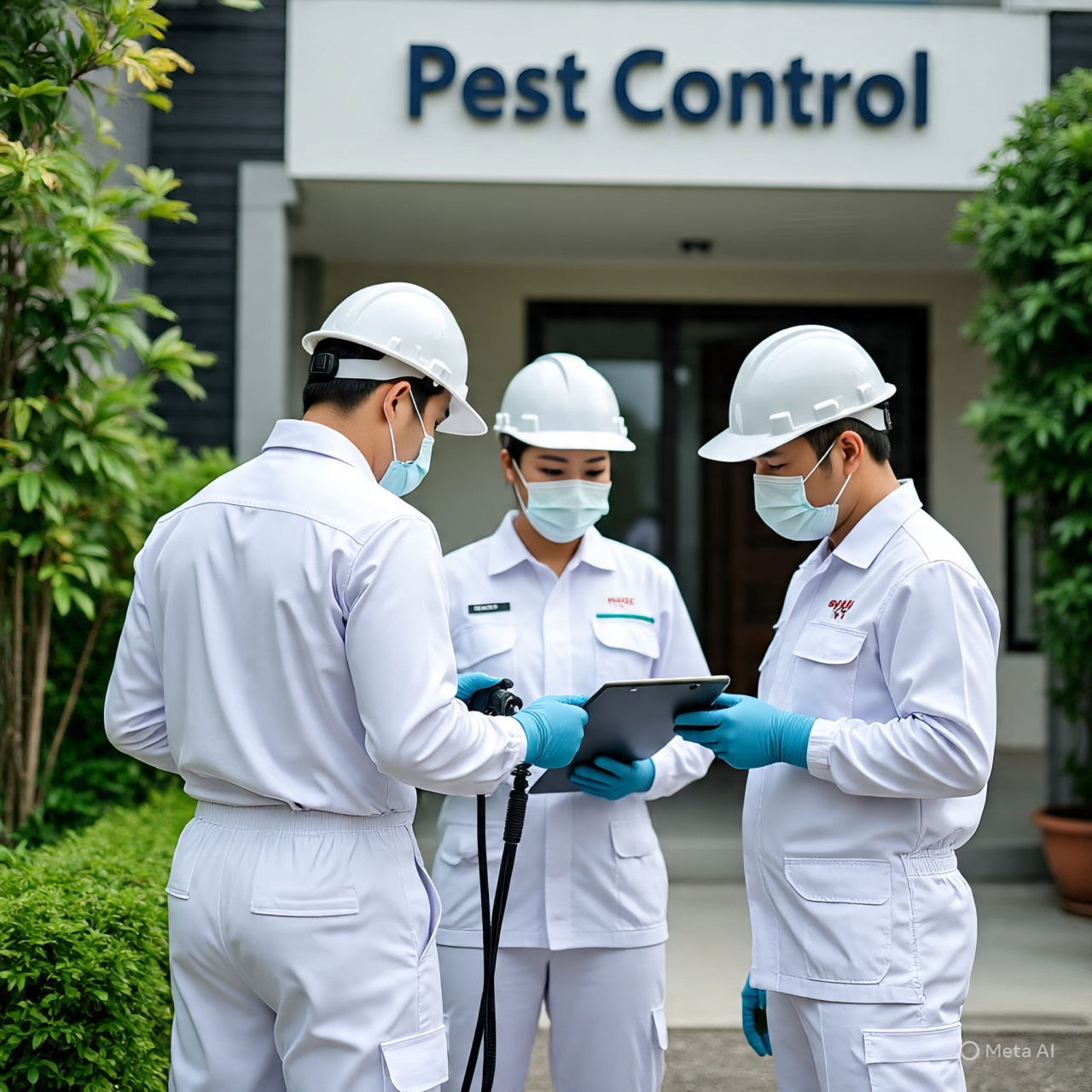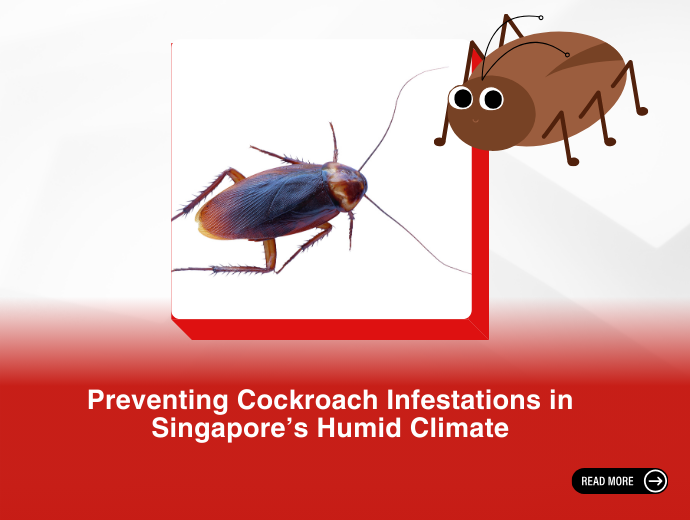Pests are a significant problem in Singapore, and effective pest control is essential. Fortunately, technology has revolutionized the way we control pests, making it safer, more effective, and sustainable.
The importance of effective pest control
Pests such as mosquitoes, rodents, and termites thrive in Singapore's tropical climate. Pest control is essential to protect our health, property, and the environment. Effective pest control can prevent the spread of diseases, minimise property damage, and create a safer living and working environment.
Pest control methods such as chemicals, pesticides, and traps have been in use for decades. While these methods are effective, they come with some limitations and drawbacks.
Smart pest control technologies utilise the latest advancements in internet of things (IoT), artificial intelligence (AI), and automation to eliminate pests more effectively.
1. IoT Devices
IoT refers to devices that are connected wirelessly to a network and can interact with other devices by transmitting data. IoT devices can be used in pest control to monitor pest activity remotely. IoT devices, such as smart sensors and cameras, can monitor pest activities in real-time. These devices can provide instant alerts when pests are present, allowing for a timely and educated response.
Benefits of IoT technology in pest control
IoT technology improves pest control by providing real-time information about pest activities, reducing the need for manual monitoring, and enabling more targeted responses to pest problems.
Case study: Smart Sensor Technology for Pest Control in Singapore
In Singapore, smart sensors are used to monitor rodent activity in public areas such as hawker centres and shopping malls. These sensors can detect the presence of rodents and send an alert to the authorities.
2. Automated Pest Control
Automated pest control involves the use of machines to perform pest control activities and to eliminate pests. These machines can be programmed to perform specific actions, such as spraying pesticides or setting traps.
Automated pest control can be used in various settings, such as commercial buildings, and public spaces.
3. AI-Based Pest Management
AI-based pest management involves the use of artificial intelligence to monitor and control pest populations. It involves the use of technology to simulate human intelligence and automate tasks. AI-based pest management uses machine learning algorithms that enable the system to learn from its experiences and improve its efficiency over time. (Source: FAOPMA Magazine - July 2023)
Advantages of AI-based pest management
AI-based pest management is more efficient and accurate than traditional methods. It can be used to monitor and control pests in real-time, reducing the risk of an infestation.
Case study: AI-driven Pest Control in Singapore
In Singapore, AI is used to track the movements of rats in selected areas. The system can detect when a rat is present and respond appropriately. (Source: The Straits Times)
4. Biologically-Based Pest Management
Biologically-based pest management involves the use of natural predators, such as insects and microorganisms, to control pests.
Biological pest control works by introducing natural‘’énemies’’ into the ecosystem to control pest populations. For example, introducing ladybugs to a garden can help control aphids.
Biological pest control is environmentally sustainable, as it does not involve the use of chemicals or pesticides.
Benefits of Smart Pest Control
Smart pest control has several benefits over traditional methods, including cost savings, improved effectiveness, and sustainability.
1. Cost Savings
Traditional methods require regular monitoring and reapplication, which can be time-consuming and costly. Smart technologies, on the other hand, can be programmed to perform tasks automatically, reducing the need for manual intervention.
Smart pest control technologies can save money in the long run, as they require less monitoring and maintenance. Further, the use of fewer or no toxic chemicals further reduces harm to humans, other animals, and the environment.
2. Improved Effectiveness
Smart pest control technologies can be more effective than traditional methods, as they can provide more targeted responses to pest problems.
Smart pest control technologies can be programmed to respond to specific pest problems, reducing the risk of over-application or under-treatment. Additionally, they can provide real-time information about pest activities, enabling timely responses.
Case study: Smart Mosquito Trap in Singapore
In Singapore, a smart mosquito trap has been developed that uses AI to attract and trap mosquitoes. The trap can distinguish between mosquito species and can help track mosquito activity in real-time. (Source: TODAY Online)
Studies have shown that smart pest control technologies can be more effective in controlling pest populations than traditional methods.
3. Sustainability
Smart pest control technologies are more environmentally sustainable than traditional methods, as they do not involve the use of harmful chemicals and pesticides.
Traditional pest control methods can be harmful to the environment, as they can contaminate soil and water and harm non-target organisms.
Conclusion
Smart pest control technologies offer several advantages to enhance traditional methods, including cost savings, improved effectiveness, and sustainability. Smart systems can detect pests quickly and accurately, and allow pest control professionals to use targeted treatments with data and information that are specific to each pest. Pesticides are used only when needed, thus reducing environmental pollution and health risks. Smart systems can also help identify potential pest problems early on, allowing for preventative measures to be taken.
FAQs
- What are some of the risks associated with smart pest control technology?
Answer: Some risks associated with smart pest control technology include privacy and security risks, skills gap, and regulatory compliance.
- How does smart pest control contribute to a more sustainable environment?
Answer: Smart pest control contributes to a more sustainable environment by reducing the use of harmful chemicals and pesticides, protecting natural ecosystems, and minimising air and water pollution.
- What are some of the benefits of biologically-based pest management?
Answer: Benefits of biologically-based pest management include sustainability, effectiveness, and the lack of harm to non-target organisms.
- How do IoT devices improve traditional pest control methods?
Answer: IoT devices can improve traditional pest control methods by providing real-time data on pest activity, enabling timely responses, and reducing the need for manual monitoring.
- What is the future of smart pest control technology in Singapore?
Answer: The future of smart pest control technology in Singapore is expected to involve more advanced AI-based solutions, increased integration with existing systems, and enhanced cybersecurity measures.
You might also be interested in Sustainable Pest Control Practices: Protecting the Environment in Singapore
.png)


.png)